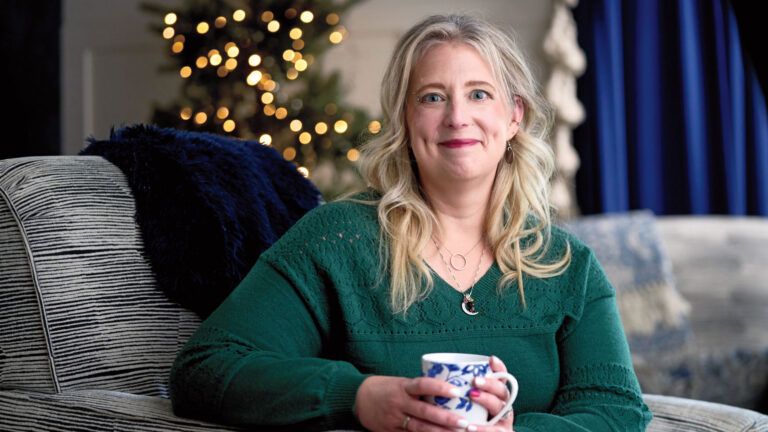The act of forgiveness is one of the most difficult things life asks of us. Yet it is one of the most necessary—mentally, spiritually, even physically. As the director of the Stanford University Forgiveness Project, I’ve devoted over 15 years to helping people let go of the grievances, grudges and heartache in their lives.
I’ve worked with mothers whose sons were killed in sectarian violence in Northern Ireland, with families of 9/11 victims and with thousands of everyday people who have been let go from jobs, cheated in business, betrayed by their spouses or mistreated by their parents. My research shows that forgiveness is a skill you can develop and practice like any other. And I can say with scientific certainty that learning to forgive makes you healthier, happier and, most important, deepens your relationship with God.
It’s often people who are at their lowest point, who feel disconnected from God and their friends and family, who come to me for help. They know the Bible says they should forgive, but it doesn’t spell out how to do it. Most people, I’ve discovered, don’t really understand what forgiveness even is—and what it isn’t.
Forgiveness changes the present, not the past. Forgiveness is a personal choice. It’s not about changing the person who hurt you. It’s not about condoning their actions or even reconciling with them. It’s a choice you make to heal yourself. Letting go means deciding that you’re not going to allow anger and bitterness to poison your life. It’s about taking control of your thoughts and emotions and not playing the part of the victim in your life story.
Research shows that people’s reactions to the exact same event differ widely depending on their point of view. In one study, participants were given details of a car accident where the driver was grossly negligent. Some were told that they were injured victims. Others were given the part of rescuers and heroes. The “victims” felt angry and helpless. The “heroes” felt their self-confidence soar. By forgiving you’re able to take on a new role. Instead of remaining a victim of someone else’s bad behavior, suddenly you’re someone who persevered, who had courage, who learned from their mistakes.
I know the power of this transformation. I’ve lived it myself. My best friend growing up was a boy named Sam. He was the brother I never had. We were inseparable. Then in college he met a woman who didn’t want him spending time with me. Almost overnight he cut me out of his life. When they got married I didn’t even rate a phone call, much less an invitation.
The pain of his rejection ate at me long after I celebrated my own wedding and went to graduate school to study psychology. I didn’t realize how cynical and distrustful I’d become until one day my wife said, “Fred, I love you, but I don’t like the person you’ve become.”
I was devoting more energy to someone no longer in my life than I was to the people I cared most about. There’s an expression I’ve heard: Holding onto resentment is like drinking poison and expecting the other person to die. That was me. I needed to let go.
I read everything I could about forgiveness, which at the time wasn’t much. The topic took hold of me. I thought long and hard about what Sam had done, why it bothered me. I began to understand how my holding a grudge was really my inability to handle rejection.
Something amazing happened. I got so interested in forgiveness I didn’t have time to fixate on the past. Had I discovered something that could benefit others? I was a scientist. I needed to know for sure.
I designed my first experiment and put an ad in the paper asking for volunteers who were having trouble forgiving. Nearly 200 people applied! I wasn’t the only one looking for answers.
By the end of the experiment I knew I’d found my life’s work. And I was no longer angry at Sam. It was funny, our dispute seemed more like a blessing. I wanted to share what I’d learned.
Put your hurt into words. When someone mistreats you, you have a very real reaction. Your blood pressure shoots up. Your muscles tense. Your body’s ready to do one of two things: fight or flee. It’s an instinctive response.
Fortunately it usually doesn’t take long for the higher brain to realize there’s no grave danger, and life returns to normal. But sometimes you can’t get past it. Your thoughts turn back to what the other person has done, and each time triggers the fight or flight reflex. Your stress level skyrockets.
The first step toward forgiveness is to confront those feelings. Chances are you’re experiencing a variety of emotions: fear, betrayal, confusion, anger, shame. Write them all down. Think about how each one makes you feel. Then tell just a few close and trusted friends.
Doing this fights the tendency to minimize or deny what you’re going through. It’s okay to admit you’re hurting. You can’t address a problem you won’t acknowledge.
Be specific about what happened. Just as important is knowing what caused your hurt and why it matters so much to you. This is different from describing your pain. You’re acknowledging that something specific did happen to you.
Again, write it down and share it with a few trusted friends. It’s not enough to say your ex-husband is a jerk or your sister is annoying. What did they do? Why did it upset you? You’re moving beyond raw emotions to understanding why you feel the way you do. Ask yourself if these feelings are a pattern in your life.
Remember, this isn’t about changing the person who hurt you. It’s about understanding yourself in a deeper, more healing way. The thing that hurt you is in the past. By remaining resentful, you are only re-inflicting that pain on yourself.
Change the channel to positive. Imagine your life is a 500-channel TV lineup. On Channel 51 there are nature shows. Channel 14 features love stories. Channel 28 has inspirational programming.
But of course there are channels that are frightening, that cause worry, that make you angry. Those are what you flip to when you feel betrayed. The problem comes when that’s all you watch for weeks, months or even years. You miss the amazing, life-affirming things happening all around you.
Forgiveness comes through deliberately changing the channel to the positive. Do things that focus your attention away from yourself and your past hurt. Call a friend you haven’t talked to in a while. Get involved at church. Play with your children. Go on a hike and breathe in the beauty around you.
Keep at it day after day, until positivity blots out negativity. Use the beauty of the world to conquer your hurt. Your stress and anger will ease. You will find, as I did, that you have become a forgiving person.
Pray for comfort. For some people just knowing forgiveness is an option can be immediately freeing. But for most of us, forgiving takes time and effort.
One of the best ways to get into a forgiving frame of mind is through prayer. When you feel your anger resurfacing, your body tensing, pray. Take a deep breath, pushing your stomach out then relaxing it as you exhale. Do this with each prayer you say. Prayer is calming. It forces your mind to slow down and redirect your thoughts away from yourself.
Practice, practice, practice. Forgiveness is a life skill you can learn and get better at. Look for small ways every day to forgive—the driver who cuts you off in traffic, the sales clerk who’s rude, the coworker who didn’t give you credit for your idea. Then when something more difficult happens you’ll be far more able to handle it. It doesn’t mean that you won’t feel deep hurt or disappointment. Forgiveness doesn’t make you immune to emotions. But you’ll take it less personally. You won’t lose sight of the wondrous things happening all around you.
It’s good for body and soul. How do I know that this is true? Because I’ve seen the amazing results in study after study. The same process works whether you are a college student bickering with a roommate or a mother grieving the loss of a child.
The women I worked with in Northern Ireland initially rated their pain at 8.5 on a 1 to 10 scale. Their stories were truly heartbreaking. At the end of one week of practicing forgiveness the hurt they felt had fallen to an average a bit over 3.5. Six months later it remained below 4.
Forgiveness is a transformative act, a path to spiritual contentment. Studies from a variety of disciplines demonstrate that spirituality is tied to healthier lives. Why? Because you can’t be consumed by anger and feel a close, personal connection with God. It’s most often when people focus on others, when they’re able to see the wonder in their lives, that they feel God’s infinite love.
When you forgive it releases the stress you’ve built up from focusing inward on your pain. Prolonged stress has a negative effect on your body. In one study I divided participants into two groups and asked them to rate the number of times they felt physical symptoms such as a racing heart, upset stomach and dizziness. The group who completed forgiveness training reported significant decreases in their symptoms initially, and still four months later. The group that didn’t go through training experienced no change.
I’ve seen the power of forgiveness. Thousands of times. Lives unchained from the traumas of the past. Do you need to forgive? Then take the first step into a brighter and blessed future.
Download your FREE ebook, Paths to Happiness: 7 Real Life Stories of Personal Growth, Self-Improvement and Positive Change.





